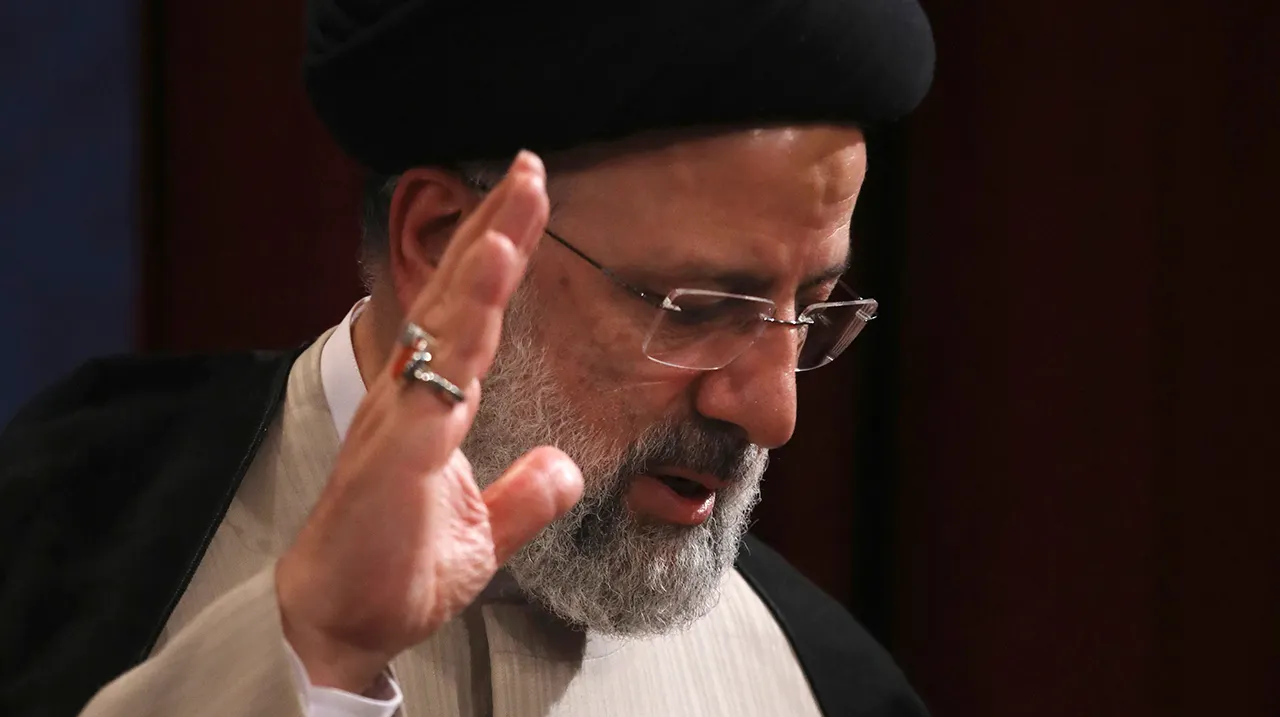The government of President Ebrahim Raisi commenced its third year on August 5, 2023. Traditionally, at the onset of each year, Iran experiences an intensification of internal discourse regarding the assessment of the government’s performance in the preceding year, as well as its capacity to fulfill its obligations within the remaining timeframe leading up to the subsequent presidential elections in mid-2025. It can be argued that the current administration (the thirteenth in office) has encountered an unparalleled level of political polarization during its performance evaluation, primarily attributable to three key factors:
The first is that this government belongs to the fundamentalist conservative movement that controls most of the decision-making circles in Iran since the exit of the moderate movement from power at the end of the second presidential term of former President Hassan Rouhani, on August 5, 2021. Of course, the pursuit of power by the moderate movement again pushed it To focus on what he called “the many negatives” in the performance of Raisi’s government.
The second significant event is the upcoming Islamic Consultative Assembly (Parliament) elections, scheduled to occur in early 2024. It is anticipated that the moderate faction will strive to achieve remarkable outcomes during this period. Presently, endeavors are underway to establish a robust electoral alliance that unites supporters of President Hassan Rouhani and certain conservative figures, including the former Speaker of the Shura Council, Ali Larijani. Consequently, the ensuing phase will witness a fierce confrontation between the moderate and fundamentalist conservative factions, particularly due to the relentless endeavors of the latter to solidify their dominance over the majority of decision-making spheres.
The third issue pertains to the ongoing debate surrounding the nuclear agreement, particularly in light of the setbacks faced during the nuclear negotiations. This has led to a consistent evaluation and critique of the agreement and the team responsible for its accomplishment during the tenure of former President Hassan Rouhani. In most instances, conservative fundamentalists perceive the agreement as one that deprived Iran of significant concessions, while offering only limited benefits that abruptly ceased following the US’s withdrawal on May 8, 2018.
The Problems in Iran
The key concerns that have been the central focus of assessing the performance of Prime Minister Raisi’s government during its second year can be outlined as follows:
1- Mixed performance in the international arena: The trends indicate a favorable outcome for the current government and the fundamentalist conservatives, highlighting their success in areas where Rouhani’s government had previously failed. Notably, diplomatic relations with Saudi Arabia, which had been severed during Rouhani’s presidency, have been restored in accordance with the Beijing agreement of March 10. Importantly, these trends suggest that Iran did not make any concessions in return for this restoration. Instead, they posit that Saudi Arabia took the initiative to restore relations, just as it had initiated their severance. Iran has also strengthened its relations with various regional countries, including the UAE, Kuwait, Libya, and Algeria. Furthermore, Iran has been actively pursuing efforts to enhance its relations with Egypt. Additionally, Iran’s successful accession to the “Shanghai Cooperation Organization” should be acknowledged.
In contrast, proponents of the anti-government stance argue that there were significant setbacks in foreign policy under Raisi’s leadership, particularly regarding the issue of the three Emirati islands. These setbacks were exacerbated by the support extended by China and Russia to the UAE during the Gulf summit. Notably, the Chinese meeting held in Riyadh on December 9, 2022, and the meeting between the foreign ministers of the Gulf Cooperation Council and Russia in Moscow on July 10, 2023, can be seen as setbacks that prompted Iran to adopt a more assertive approach towards the islands issue in the recent period, as exemplified by the maneuvers conducted on Abu Musa Island on August 2.
2- Continued Challenges in the Nuclear Agreement with Western Nations: Pro-government tendencies persistently demonstrate a determination to pursue further escalatory measures in the realm of nuclear affairs, notably by persisting with enrichment activities up to a level of 60%. These tendencies have not yielded to the pressures exerted by Western nations, particularly the United States of America. These inclinations are substantiated by the findings of the International Atomic Energy Agency’s report, released on May 31, which unveiled that Iran’s enrichment production has exceeded the stipulations outlined in the nuclear agreement by a factor of 23. Specifically, Iran has produced 4,744.5 kilograms of low-enriched uranium at a concentration of 3.67%, surpassing the agreed-upon limit of 202.8 kilograms. Moreover, Iran has enriched 114.1 kilograms of uranium to a level of 60% and 470.9 kilograms to a level of 20%.
However, the counteracting trends against this policy have been deemed ineffective in achieving significant positive outcomes. For instance, Iran’s position in the nuclear negotiations, which resumed from April 2021 to September 2022, has not been strengthened due to the government’s failure to implement its adopted approach. This approach is centered around leveraging advancements in nuclear power to secure further concessions from Western nations.
Despite the efforts made by the US to alleviate the severity of sanctions imposed on Iran, such as granting exemptions to Iraq for the release of Iranian funds, these exemptions are contingent upon the allocated funds being utilized for humanitarian purposes, particularly for the procurement of food and medicine supplies. Furthermore, these funds will be held in an account in Muscat under the supervision of the US Treasury.
3- Government followers assert their ability to coexist with the United States’ sanctions, highlighting that they have not been compelled to accept any nuclear agreement without securing substantial assurances and benefits. They have also refrained from complying with certain Western demands, such as joining the Convention on Combating Terrorism and Money Laundering (FATF). Notably, the Kayhan newspaper, known for its affiliation with the Supreme Leader’s office and the conservative fundamentalist movement, has prominently featured a report titled “Achieving Success through Non-Defiance.”
A significant event occurred on the 4th of August as the government commenced its new year. Their initial report released on this occasion highlighted that the Rouhani administration, despite its commitment to the nuclear agreement, failed to fulfill the promises made to the public. Interestingly, the Raisi government, despite the nuclear agreement’s shortcomings and non-membership in the FATF group, has managed to achieve noteworthy success.
According to the source, the total value of Iranian oil exports in the past nine months was approximately $42.1 billion. It is worth noting that under the leadership of President Rouhani, Iran’s average oil revenues amounted to $37 billion. However, it is important to acknowledge that these figures were surpassed between the start of 2016 and the middle of 2018, a period in which the US was a signatory in the nuclear agreement and had temporarily lifted a significant portion of its sanctions. During this period, Iran’s annual oil export revenues reached approximately $50 billion.
Government detractors note the temporary nature of these results, emphasizing their dependence on international and regional circumstances that may not endure, such as the fluctuations in oil prices and the ongoing Russian-Ukrainian conflict. Despite the US’s turning a blind eye towards Iran’s efforts to evade sanctions imposed on its oil exports, it does not guarantee a prolonged continuation of this policy. Indications have emerged that certain countries, possibly under pressure from the US, are halting the imports of Iranian oil as seen by Indonesia. Similarly, the US seized an Iranian oil tanker in April.
Inflation has reached 30%
4- The government’s economic performance has had mixed results: On August 1st, Ehsan Khandozi, the Iranian Minister of Economy stated that inflation decreased to 30% in July. This decline can be attributed to the government’s deflationary policy, which aims to control the growth rate of liquidity, as well as the global decrease in inflation. Several reports supporting the government’s actions have highlighted its success in increasing the value of the riyal against the dollar. This achievement comes after a period of collapse, where the dollar reached 41,300 riyals in the official market. However, critics of the government argue that their efforts to prevent the devaluation of the national currency have been unsuccessful, given that the black market exchange rate for the dollar stands at approximately 499,500 riyals. Additionally, reports are suggesting that poverty rates have risen under President Raisi’s administration. According to a report from the “Khabaranline” website, which cites Mohsen Berhadi, a deputy in the Seventh Development Unification Committee in the Shura Council, the number of individuals living below the poverty line has surged by 18 million, reaching a total of 28 million.
After two years of Raisi’s administration, the number of individuals falling below the poverty line has increased by 18 million
Ongoing controversies
The ongoing debate between moderates and fundamentalist coupled with the unresolved controversies surrounding the benefits and drawbacks of the nuclear agreement, suggests that this division will persist into the future. Despite Iran’s expressed intention to scale back its nuclear capabilities, it continues to adhere to certain provisions of the agreement. This disparity is expected to endure until the upcoming mid-2025 presidential elections, wherein the incumbent president, Ibrahim Raisi, may encounter more formidable adversaries compared to previous electoral contests.


